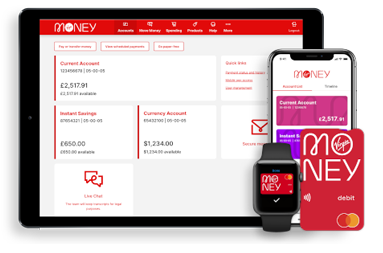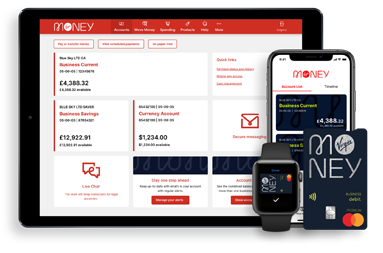How to structure an earn-out
< back to all business news articles
25/01/2018
An earn-out is a pricing structure that means the seller must 'earn' part of the purchase price, and this is based on how well the business performs after the sale. If you're selling your business, and you and the buyer disagree about how much the business will grow in the future, you could strike a deal with the buyer where you agree you'll 'earn' a percentage of the price tag over a specified time frame.

The terms and conditions of an earn-out really depend on who will actually manage the business following the closing. If the buyer will manage the business, you might be concerned with mismanagement, causing the business to miss targets. On the other hand, if you're staying on to manage the business, the buyer may be concerned you'll either minimise or understate expenses or overstate revenue.
The key factor for you as the business owner and seller is to make sure you're protecting your financial legacy with an optimal deal. That's why it's important to structure the deal in with a business broker and your lawyer - it's not something you could or should try to handle on your own.
Putting some skin in the game
Most earn-out deals require you to stay on during the transition period. This is a good thing because it means you know exactly what's happening and you're incentivised to live up to the expectations of the earn-out deal. In order for it to go smoothly, there are two key factors to keep in mind right from the beginning:
- Be honest with yourself about the true potential growth of your company. There's no point in overstating things and then falling short. Make sure the terms of the deal involve realistic expectations of growth and profit.
- Plan on working just as hard, if not harder, after the acquisition if you structure an earn-out for your business. Of course, you'll have an incentive to do so, but you should prepare yourself for a stressful period during the transition.
Make sure you consider both factors carefully before you approach an earn-out arrangement. If you don't think your business can meet certain targets within a 2-3 year time frame, or you're not willing to stay on and run the place, all the while keeping the earn-out expectations in mind, then it's time to look at other sale options.
Structuring the earn-out deal
As we've mentioned, it's important to keep realistic targets in mind. It's also essential the deal is structured with the help of professionals on both sides.
When you're negotiating the deal, make sure you consider:
- What portion of the sale price you'd be willing to risk, and to work for during the transition period.
- The length of the transition period. How long are you willing to stay on? Can you meet the targets in that timeframe?
- The terms of the deal. There's any range of terms that you and the seller might consider. For example, the buyer might agree to pay 80% of the total price upfront, with the remaining 20% paid in stock or cash after the transition period. Or you could split the sale price 50/50 over a 5-year period, which is the timeframe you have to optimise the business's performance.
Keep it simple
If at all possible, try to avoid a complicated combination of goals and objectives; that kind of deal is more open to interpretation down the track and could lead to misunderstandings when it's time to close. Earn-outs are most effective as an incentive for the seller when the size of the payout is determined based upon one or two simple variables. Your lawyer and business broker should be aiming for a simple deal based on goals that are easy to understand, such as increased profits or customer base.
Strengthening the agreement
Still keeping realistic targets in mind, living up to the terms of an earn-out deal is easier if you make sure it includes a few key elements:
- Make sure you can retain the staff you need. If you have employees who are integral to your business success, you'll need them during the transition period.
- Avoid 'earn-out burn-out' by making the transition period as short as possible. You can always renew and re-negotiate, but can't go backwards.
- Retain control. The agreement should state explicitly that you're still overseeing the management, especially those involved in achieving the targets in the earn-out deal. The last thing you want is to be held accountable for factors out of your control.
- Make sure there are good incentives in place. The earn-out percentage should be high enough to keep you from losing interest, especially in the event of a setback.
- Avoid earn-out deals if the buyers are employees or family. There are many good reasons for this, primarily that misunderstandings are all too common and the last thing you want to have to discuss over Christmas dinner. With employees, too often they won't have enough capital and you'll be required to finance the transaction AND the earn-out deal.
Summary
The key factor to keep in mind is that, in most earn-out cases, you’ll be required to stay on for a stated time frame, and that during that time, you’ll be working long hours under more stressful conditions. If you’re not prepared to take that on, then an earn-out is not for you.
It’s also important to be realistic about what growth targets you can expect your business to hit. It’s one thing to talk your potential up if you’re selling and walking away; it’s quite another to have the responsibility of living up to that potential as part of the deal.
Make sure you consult with professionals when considering an earn-out deal. They will make sure the agreement is structured properly with as much benefit to you as possible.
POSTED IN: Succession
SHARE
Related Articles
You can find impartial information and guidance on money matters on the “MoneyHelper” website.
Clydesdale Bank is covered by the Financial Services Compensation Scheme (FSCS), Find out more.


